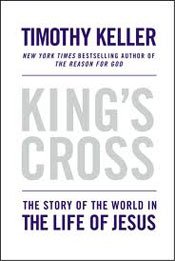The problem with believing in a loving God is that the world doesn't function as if such a God exists. That problem is only made worse when we inherit a difficult theological tradition. Are we really supposed to believe that the God who "knit (us) in (our) mother(s') womb," in the words of Psalm 139, specifically chose to create each human being in such a way that the vast majority of us, from the beginning of time until now, has been fine-tuned to spend eternity in Hell?
Theologians refer to the why-do-good-things-happen-to-bad-people question as "the problem of evil," but that phrase doesn't quite go deep enough. The oldest theological traditions ask us to believe that God has infinite power but, being the source of morality, absolutely no responsibility for using that power in horrific ways. The message "might makes right," in other words, is at the core of how the Bible appears to address the problem of evil. This is certainly how most biblical scholars tend to interpret the Book of Job, which resolves a man's questions about the death of his family and other calamities by reminding him that God is too powerful to indict. (This belief is also implicit in C.S. Lewis' reminder, in his essay "God on Trial," that "God is in the dock.")
Judaism and Islam have rich and complex traditions that deal with this question, but Timothy Keller's "King's Cross: The Story of the World in the Life of Jesus" (Dutton/Penguin, 2011, $26) focuses on a Christian response. The book itself isn't identified specifically as an answer to the problem of evil—and Keller's attempt to answer the question directly, in a section on divine wrath, is arguably the least convincing part of the book—but the detailed portrait it paints of an innocent and crucified God is clearly written as an exercise in apologetics, an attempt to follow the apostolic mandate to "give reason for the hope within" (1 Peter 3:15).
Newsweek has described Keller, the Manhattan mega-church pastor who wrote The New York Times bestseller "The Reason for God" (2008), as "C.S. Lewis for the 21st century." In this book he attempts an audacious task that Lewis never took on: a biography of Jesus that is a gospel's gospel, an attempt to connect readers to the Gospel of Mark in a way that will, in Keller's words, "try to show ... how beautifully (Jesus') life makes sense of ours."
The book largely succeeds at this, which is remarkable given how audacious and timeworn the task of gospel writing is. By relying on some of the usual suspects (Greek etymology, J.R.R. Tolkien, 16th-century Anglican missionaries) and some very unusual suspects ("Harry Potter," Kafka's "The Trial," Albert Camus), Keller does something that no other contemporary author, to the best of my recollection, has ever done: give readers a persuasive, entertaining and original presentation of Christian orthodoxy that can be easily read in a single sitting. You can argue with its content, but you can't argue with its readability—or with Keller's obvious gifts as a writer and apologist.
This is not to say that the book is without flaws. Keller writes to doubters, but the narrative is cloaked in a certainty that is both essential to his task and detrimental to his goal. Among other things, he repeats Lewis' mistake of making proclamations about religious traditions with which he does not appear to be familiar. Nearly every time Keller states that Christianity is the only faith tradition to do something, he is completely wrong. For example, he cites church historian Andrew Walls as "(noting) that wherever the other great world religions began, that is their center today," describing shifts in Christian population centers, from the Middle East to Europe to the United States to the Global South, as indicative of Christianity's unique status as a religion that is "all about giving up power, pouring out resources, and serving."
But Walls' statement has historically been true only of Judaism and Hinduism, which are both tied in with national identity; Buddhism's population center has moved from India to China, and Islam's population center has moved from Saudi Arabia to Indonesia. Nor does Keller address the obvious impact of European Christian colonization on Christian religious identity in the Americas and the Global South, which has had more to do with economic exploitation than self-sacrificing love.
But on the whole, the harshest thing I can say about this book is that it is merely the most successful attempt I have read since Lewis' "Mere Christianity" to bridge the gap between the biblical life of Christ and the contemporary world. To whatever extent Keller's attempt is unsuccessful, that most likely speaks to the difficulty of the task rather than the limitations of the author.
The world can be such a horrible and inexplicable place that it was, if the Gospel of Mark is to believed, the place where God himself lost faith (how else are we to interpret the cry of "Eli, Eli, lama sabachthani?"); the place where God himself pled for mercy (how else are we to interpret his cry for God to "take this cup away from me"?); and where God himself was ultimately betrayed, tried, convicted and tortured to death. Maybe that should tell us something.
Author Timothy Keller signs copies of "Kings Cross: The Story of the World in the Life of Jesus," Wednesday, Feb. 23 at 7 p.m., at Lemuria Books (4465 Interstate 55 N., 601-366-7619).



Comments
Use the comment form below to begin a discussion about this content.
comments powered by Disqus